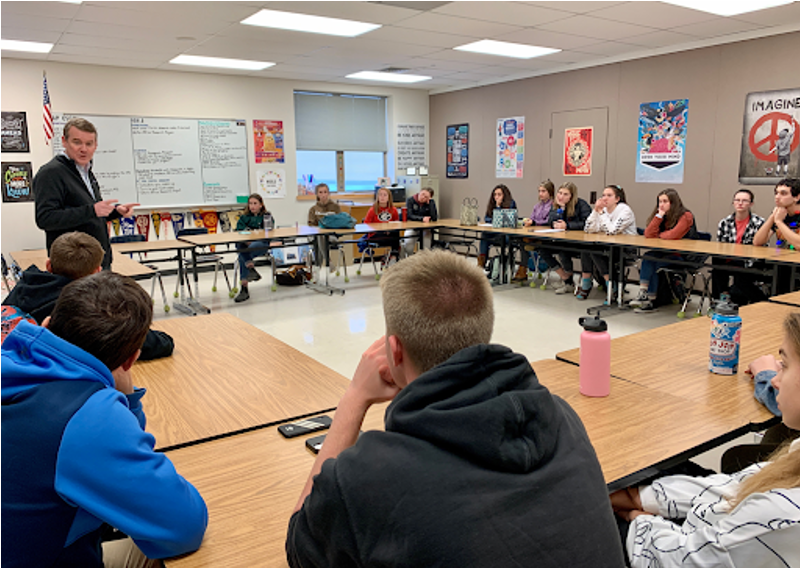


EDMONTON – According to sources in Mr. Lawrence’s Grade 11 English class, no one is sure if their teacher is leading them through an ingenious Socratic dialogue or just talking out of his ass.
“So, Taylor, you assert that To Kill a Mockingbird is about racism?” Mr. Lawrence asked.
Taylor, who was called upon either because Mr. Lawrence saw potential to push them to new academic heights through vigorous discourse, or because Mr. Lawrence happened to be standing near them, responded with an uncertain nod.
“And racism is bad, right?” Mr. Lawrence said, while glancing at the clock. “But how can it be bad if some characters in this book we’ve all read think it’s good?”
As the rapid fire exchange of ideas continued, Mr. Lawrence challenged his students to provide examples of racial discrimination in the novel, explore how the characters reacted to them, and repeatedly reiterate basic plot points.
“True wisdom is knowing the foundation of knowledge,” Mr. Lawrence said, “so who wants to tell me who Harper Lee is?”
“I think Mr. Lawrence is trying to lead us through a lengthy dialogue that forces us to question our own assumptions,” said student Sarah Chalmers. “But maybe he’s just hungover again.”
As the class wound down, Mr. Lawrence left his students with a profound ethical dilemma to ponder.
“Now, many people are judged in this novel,” he said. “Is it fair to judge people even when you don’t know everything about them? Much as Scout learned it was wrong to gossip about Boo Radley, would it be wrong to, say, gossip about a man who failed to prepare for his job? What if, unbeknownst to you, he had a lot of shit going on?”
At press time, Mr. Lawrence was asking his Grade 10 class if they believed the transitory nature of knowledge and truth meant that Romeo and Juliet could be understood by just skimming its Wikipedia page.


